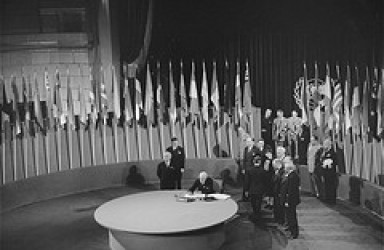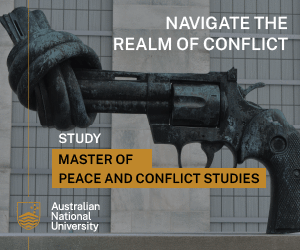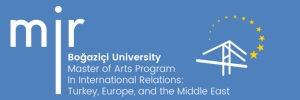Chinese Involvement In Somalia: Policy Change or Status Quo?
During the 2000’s, the role of China in international organizations has undergone a significant shift. Chinese involvement in Somalia is a sign that that the non-interventionist approaches adopted by China since the end of the Cold War is now clashing with its increased interests in other areas of the world, particularly in Africa.
An Optimistic Memo on the Chinese Noopolitik: 2001-2011
Oscillating between isolationist, export substitution, and an all-out embrace of globalization’s manifold levers, being both Dragon and Phoenix, in spite of having suffered subordination to politically assertive empires from 1850 to 1950 and having notoriously “missed” the Industrial Revolution, China is resuming its otherwise ancient status of world innovator and economic superpower.
The Ongoing Relationship Between France and its Former African Colonies
France has attempted to maintain a hegemonic foothold in Francophone Africa to serve its interests and maintain a last bastion of prestige associated with past mastery. Do these relations retain an essentially colonialist character?
The UN during the Cold War: “A tool of superpower influence stymied by superpower conflict”?
Rather than acting as a collective security system, the UN Security Council mostly remained divided throughout the Cold War and efficient UN action was often hindered by superpower conflict. Yet, undoubtedly the Cold War world was better off with the UN than without it.
The Relation of Security To Identity
Security and identity are two concepts that are deeply intertwined on many different levels, and cannot be separated, demonstrating the flaws in the Neorealist position. While identities are intersubjectively constructed and can emerge or disappear over time, they remain relatively fixed entities, and are thus an essential referent object for security.
Given Hobbes’ account of human nature in the state of nature, can one ever leave it?
In the Leviathan, men in the state of nature are rational beings and know exactly what they want, seeking the best way to stay alive and prolong their survival. This essay argues that it is impossible for men to leave Hobbes’s state of war because of their nature. At the same time, their nature is exactly what enables them to leave this environment.
A case against universal human rights
This essay seeks to explore whether it is indeed useful to endow the individual with universal human rights. Although it is essential that the individual should have human rights, these cannot be attained through the deliberate resort to universalism that we can find in the cosmopolitan position. Instead, the only possible way of protecting the individual is through emphasising her particularity.
Violence in the International System: Biological Necessity or Social Construct?
Violence in the international system can manifest itself in several ways. Principal among these are interstate war, civil war and military interventions. Yet in terms of human behaviour, conflict is relatively infrequent. This essay will examine this paradox.
Is Pre-emptive war ever justified?
Pre-emptive war is universally recognized as an anticipatory use of force. Despite the definition for the terms of a pre-emptive war, whether or not it is justified has become a complex and contradicting subject for states. There is the issue of morality, abiding by international law and comprehending the definition of “imminent threat”.
How did the destruction of Hiroshima and Nagasaki start a ‘nuclear revolution’?
Hiroshima and Nagasaki did not mark the beginnings of a ‘nuclear revolution’ as it is understood. The strategic environment and technological capabilities for a revolution did not exist in 1945 and not until much later.







